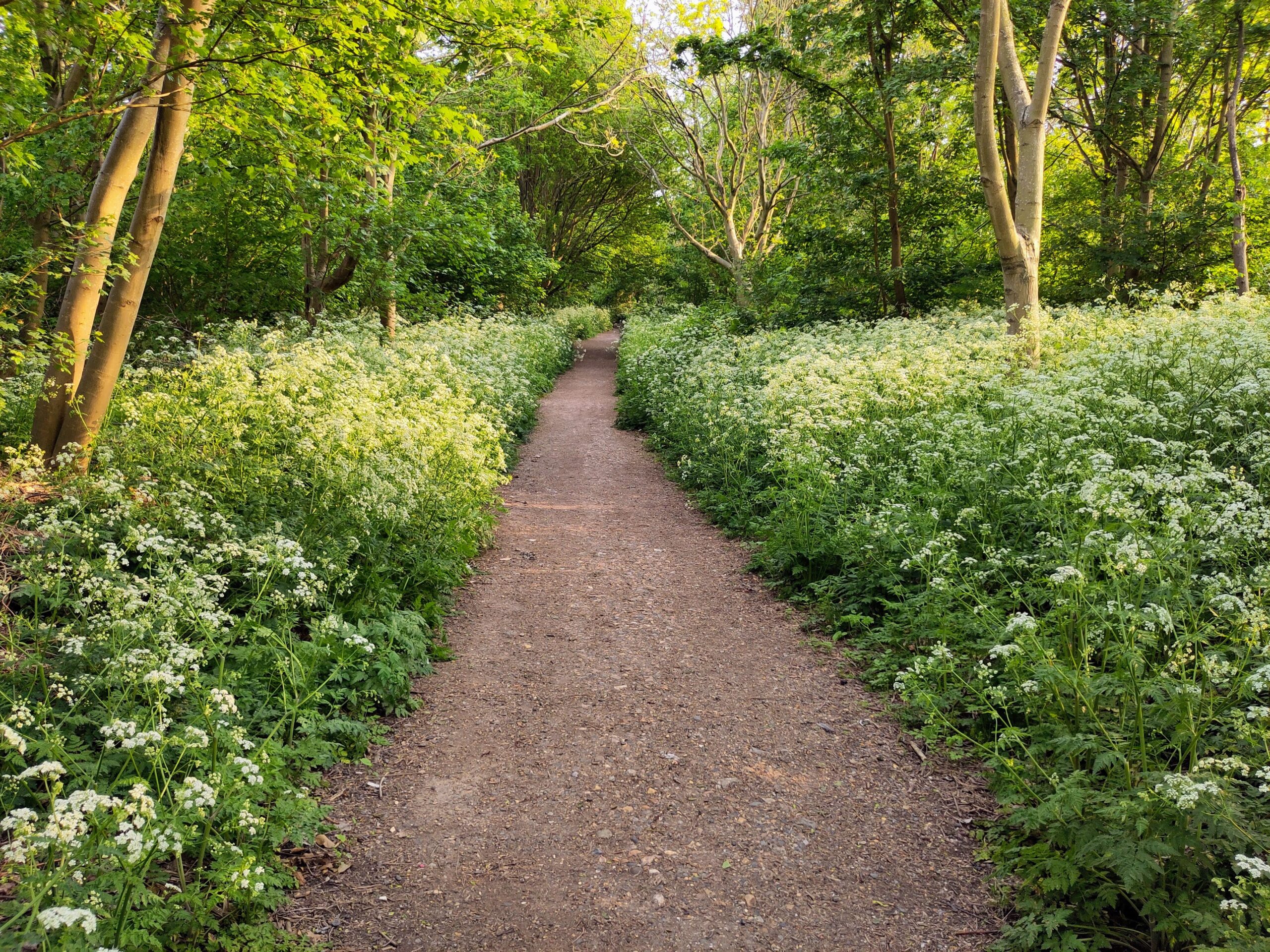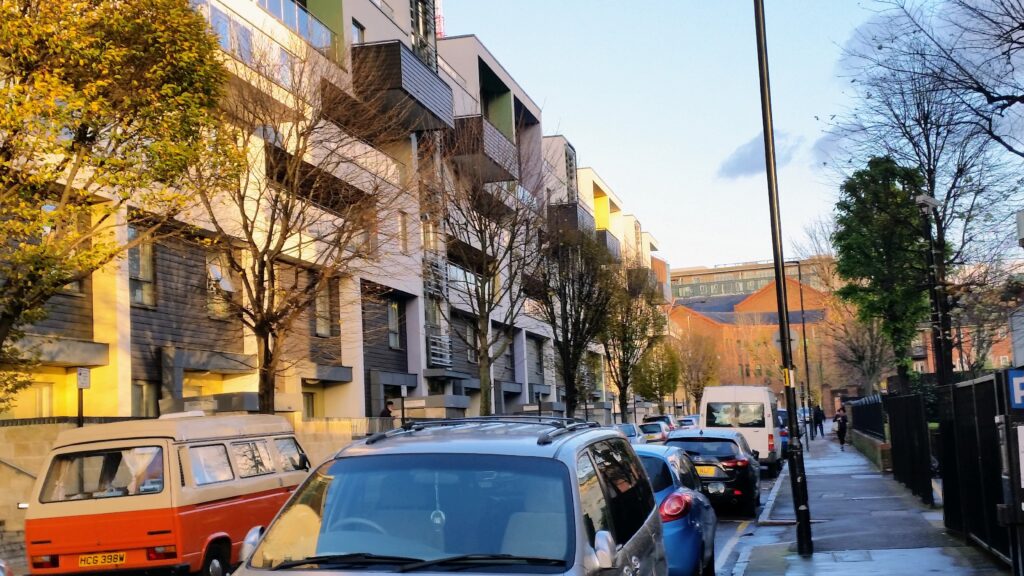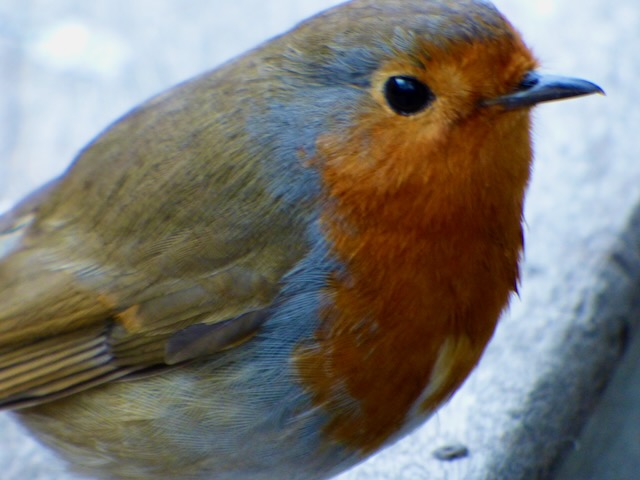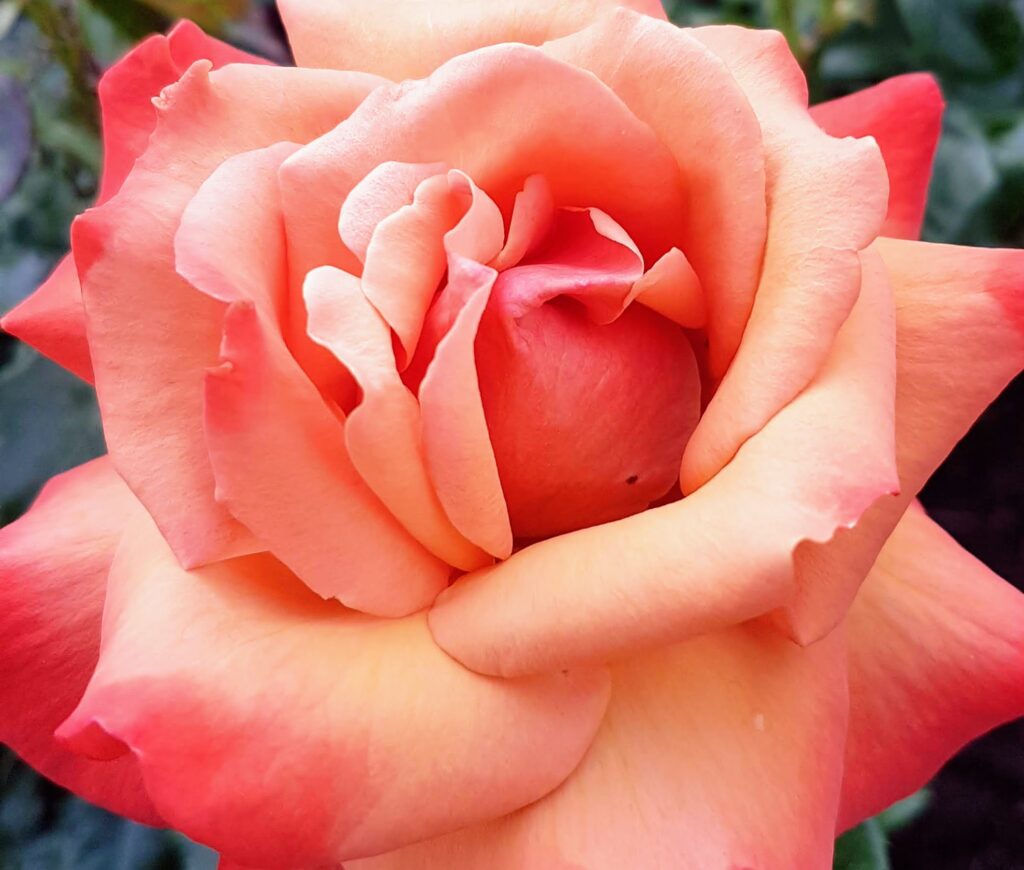
It’s a still hazy Spring morning as I gaze out on my balcony; not a whisper of wind and the horizons are drawn in, not misty, but with an intimate feeling of enclosure that lends itself to contemplation. As I do my usual early morning Qigong exercises outdoors, I feel in a flow with existence, letting go of mental control and feeling the qi moving; a sense that my legs are grounded and rooted into the earth, and that this harmonising energy is not mine, but part of the universal energy flow.
After this, I happen to think about what I’m going to make for breakfast while I’m listening to the melodious song of a blackbird on a nearby TV aerial. It occurs to me that the blackbird and its song are not in my head any more than my breakfast thoughts are in my head. There is clearly an interior to the mind but the mind isn’t inside me; rather we are all bodily inside the mind, whether we are people, blackbirds, the wheeling gulls above or the lime trees in the street. We are immersed in a mind that is not personal to us, but is the Earth’s. The mind is where it belongs, in the world.
The great founder of one of the two main schools of Zen Buddhism, Dogen, talked about the mind as in the quote below, which I used to find enigmatic and ungraspable, but which now makes a lot of sense to me.
I came to realize clearly that the mind is not other than mountains, rivers, the great wide earth, sun, moon, stars
Dogen
A gentle breeze arises, caressing my cheeks in the wan sunlight. The big herring gulls drifting in the sky make use of every waft of wind, sailing effortlessly without wing beats, perfectly attuned to the rich medium of the air. The gull’s intelligence could be said to be not centred in its head but rather as a distributed intelligence throughout its body and wings, constantly feeling and responding to the unpredictable and wild air currents swirling around in their 3D domain.
We humans tend to dismiss air as empty – an inanimate nothingness – and take for granted its life giving nature. Yet we live in this atmosphere which envelops us and bathes us; breathing in and breathing out, we share in the invisible plenitude of this precious elixir.
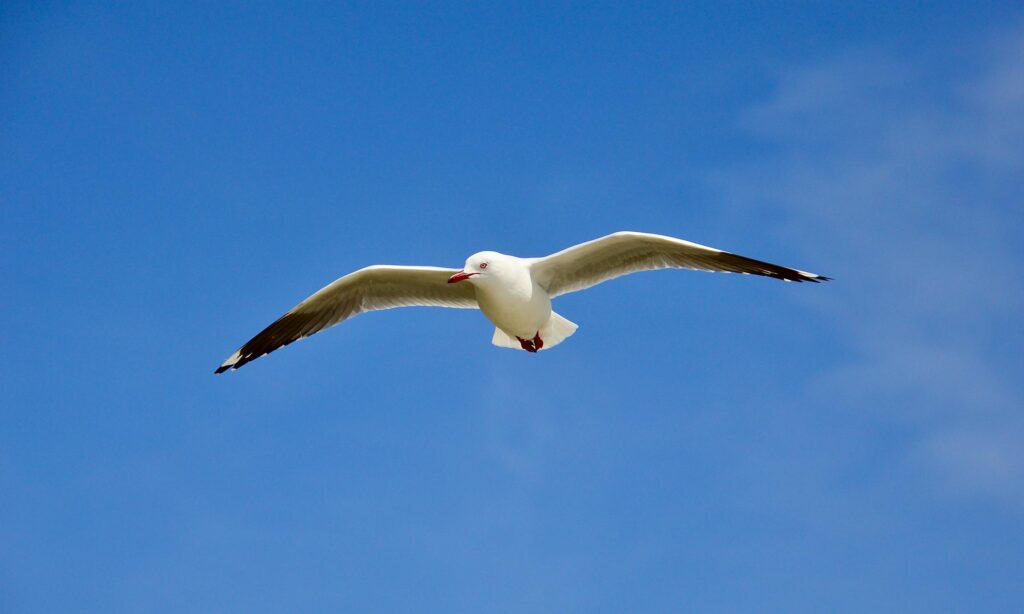
On the following day, the London Marathon passed by at the end of my street, and while at home I could clearly feel the collective good will in the atmosphere – in the air, in the mind of the world, without my seeing or hearing anything. Similarly, my cat knows when I am coming home without any possible way that she could sense from the accepted basis of the five senses; rather it seems to be a shared emotional field in the extended mind, just like I was picking up from the marathon.
When I watch an urban fox, I can see she is totally at one with all her senses, trotting silently and elegantly, listening, sniffing, attentive to every sensation around her. She is really present. Any wild creature is like this, as we once were. I get a small taste of this from the qigong practice I have done for a number of years.
We evolved as humanoids for hundreds of thousands and even millions of years, our senses open to and attuned with our wild environment, utterly at one with our wild sensuous home with its myriad creatures, plants, tastes, smells, rivers, mountains and winds. And we co-evolved together in synchrony through the millennia with our fellow creatures and plants. Our bond is truly deeply ancestral and becoming a human couldn’t be imagined without our surrounding wider kin.
Now, in a blink of an eye in the Western world, chronologically speaking, we have almost completely severed and lost that sensuous connection to the life world. It’s a longer story, but the Copernican revolution, and then the Enlightenment, upended and destroyed our comforting sense of being at home in a nurturing cosmos which had always surrounded and enveloped us; we were now cast adrift with no bearings in an inanimate universe. We increasingly lived instead in our small mind, our brain, our ‘head’ and we became ever more individualised. Of course, on the plus side from this detached observer status, it enabled the flowering of rationality, science, and the great inventiveness of modernity.
But now, in late modernity, our source of meaning and belonging has been so radically reduced, that we are left with only other human beings to provide all this for us. And yet no loved human partner or friend of ours could possibly fill that hole resulting from our withdrawal from the living world: that lost multifaceted sense of belonging, joy and wonder experienced in full engagement with the wild world.
Small wonder that we are now beginning to recognise the relief available from ‘green therapy’ – the proven psychological and physical benefits from simply going for a walk in the woods, with the lessening of depression, anxiety and alienation. Green therapy certainly helps restore sanity, but the reasons for its efficacy haven’t been deeply investigated.
Perhaps it is so effective because unconsciously our whole being relaxes and the wider sense of self can start to seep out a little from our self incarcerated mental domain of abstraction and neurosis, to expand and find relief: a kind of taste of home.
Western philosophy mostly seems to take as its starting point this alienated state and then tries to make sense of life and existence from that perspective – a profoundly anthropocentric starting point. We’ve removed ourselves from our living context and then of course nothing really makes sense. I’ve often puzzled why we, certainly in the West, have become so exclusively and profoundly human centric, so as to have removed ourselves intellectually and emotionally from our larger context, bonds and any inherent sense of meaning. It’s as if we spontaneously came into being, isolated on this planet, as detached observers and with the exclusive right to use/abuse all of the resources and all kindred life on the planet as we see fit.
Don’t get me wrong: I love thinking, reading and writing. I’m not trying to advocate for going back to some imagined romanticised indigenous way of life. We can’t go back, and wouldn’t want to; and I’m not disregarding the great benefits of modernity. Yet we are so lopsided in our dwelling so exclusively in our mental rational domain, and neglecting the whole rest of life: the attunement to wholeness, context and relationships which come from the more expansive right brain perspective, to put it in psychiatrist Iain McGilchrist’s terms.
Of course, if we feel ourselves to be living in an essentially inanimate world, it’s not possible for us to really empathise with it. Whereas In reality, we are bodily and emotionally part of the earth with all its kindred life even if we’re largely unconscious of it.
I believe that we can open to our senses, enlivening them and becoming emotionally present: it needs a loosening of our ingrained habits. I’ve made a concerted practice of consciously engaging with my senses, especially whenever outdoors. They’ve become a bit atrophied in many of us, but the senses can easily be reawakened; it’s down to giving attention to our sensory experience, which immediately lights up our day. And done over time, one becomes attuned to and starts to feel emotionally part of the seasonal and cyclic rhythms of the Earth.
It may take a while, as nature writer Robert Mcfarlane says in his new book, Is a River Alive?
“For those who, like me, have been largely raised on rationalism, to imagine a river is alive in a way that exceeds the sum of the lives it contains is difficult, counterintuitive work…..It requires unlearning, a process much harder than learning.”
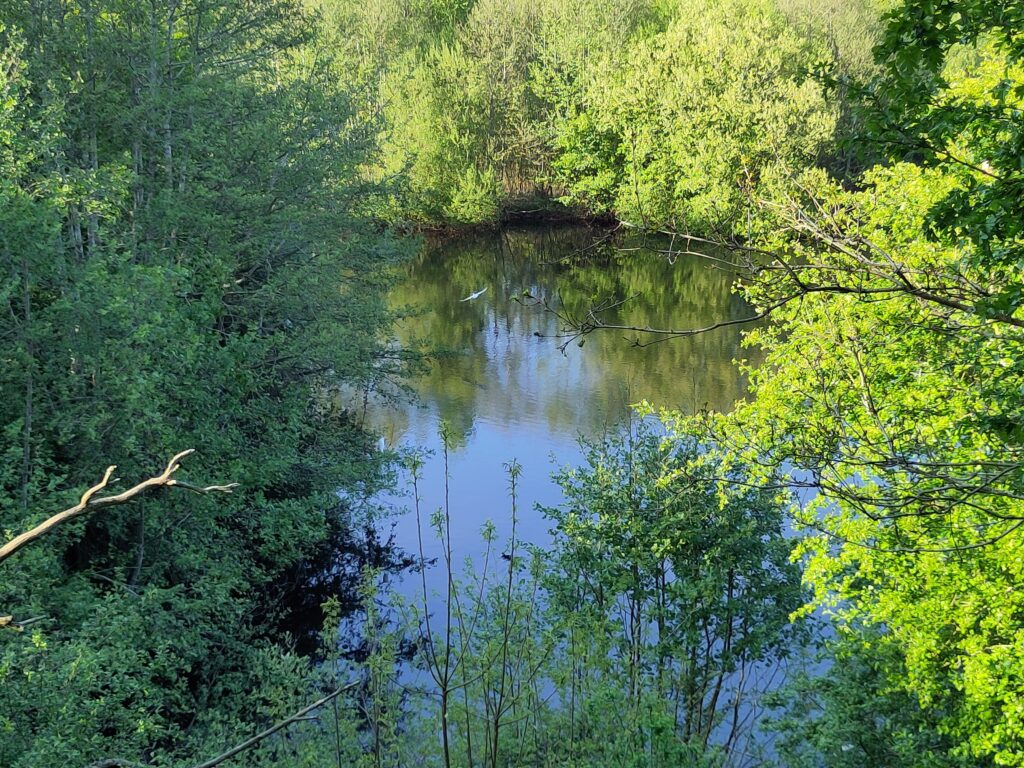
The sparkle of a crystal clear freezing winter’s day; the winter birds migrating to our lands from the arctic; the varying winds and patterns of clouds through the seasons; the first snowdrops; the buzzing of the first awakening bumble bee in late winter; the winter and summer solstices – key times for our ancestors; the first song of a song thrush on a milder February day heralding Spring approaching; the miraculous bluebells of spring woodland under lime green leafing; the first chiffchaff singing on returning from warmer southern climes; the rich scent of cow parsley flowers; rich May blossom; the scent of damp earth; planting broad beans in late autumn or beetroot in the spring; the intimacy and lazy infinity of a warm summer’s evening.
My seasons and cycles are filled with connections and belonging and experiences of wonder and awe – and I live in an urban area. You don’t have to live in the wilds to experience and be attuned all these cycles. And there’s a sense that mind has returned home.
Whoever told people that ‘Mind’ means thoughts, opinions, ideas and concepts?
Mind means trees, fence posts, tiles and grasses.
Dogen, Zen master
